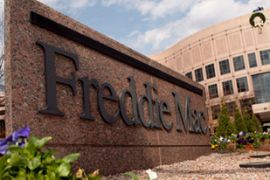Housing crisis batters US economy
Treasury secretary fears “stresses” in financial markets as house prices slump.

In more bad news for the US economy, Wachovia, the US’s fourth-largest bank posted a $8.86bn quarterly loss and said on Tuesday it was cutting more than 10,700 jobs after losses tied to mortgages soared.
Wachovia had been among the major lenders hardest hit by the nation’s housing crisis, following the disastrous $24.2bn purchase in October 2006 of Golden West Financial Corp, a California mortgage specialist.
Prices slump
Paulson told Fox News he thought the US “can get to the point within months where we turn the corner on housing” when prices have stabilised and more buyers enter the market.
The treasury secretary’s comments came as US house prices continued their slump, falling 0.3 per cent in May from the previous month, a new US government report said.
Since April 2007, US housing prices have fallen 4.9 per cent, the Office of Federal Housing Enterprise Oversight (OFHEO) said on Tuesday.
The US housing market has been hit hard by the subprime mortgage crisis, where millions of homebuyers were sold mortgages they could not repay, leading to a nation wide wave of foreclosures and rising fears of a recession.
Bail-out fears
 |
| Activists have called for a moratorium on foreclosures |
The US congress is also due to vote this week on a new legislation package aimed at reducing foreclosures in a bid to stem rising fears of a serious US economic recession.
The proposed legislation includes support for mortgage finance companies Fannie Mae and Freddie Mac, known as government-sponsored enterprises, or GSEs, which own or guarantee almost half of the nation’s $12 trillion in outstanding residential mortgage debt.
The two companies have seen their shares plunge by around 75 per cent since the start of the year as losses from their mortgage holdings threaten their financial survival.
Paulson has argued the proposal to prop up the companies by lending them money or buying their stock will help calm investors and stabilise financial markets.
He also says he is confident the proposal will pass through congress, despite budget analysts estimating that any potential bail-out of both companies by the current US administration could cost US taxpayers more than $25bn.
However, Austin King, a housing activist from the Association of Community Organisations for Reform Now group, told Al Jazeera that financial organisations were to blame.
“The main crisis can be traced back to the 1990s, when deregulation and the voracious appetite of Wall Street to start bundling and purchasing huge pools of mortgages – to limit risk – [in order to] reap the rewards of the US housing system, which was one of the best investments of the past 100 years.
“The US government has been far too slow to respond to the needs of ordinary homeowners.”
The non-partisan Congressional Budget Office (CBO) said that although there was a less than 50 per cent chance the bail-out could happen, any further slump in the market would increase those chances.